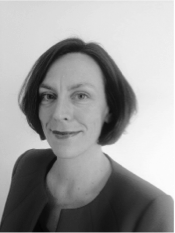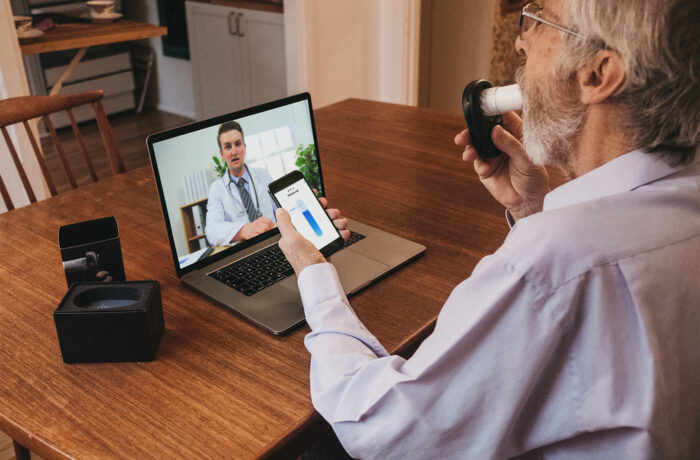I’ve Never thought of myself as a Dragon
Posted on

I’ve never thought of myself as a dragon however recently I found myself representing Digital Health.London as one of the judges at this year’s WIRED Health conference. Our task was judging 18 dazzling pitches for startups in the digital health space on the BUPA Startup Stage. The prize was not wads of cash but the honour that the single winner gets to pitch to the main stage as the closing presentation of the conference.
There was tremendous originality displayed and the range of conditions was from helping teens with mental health issues, to older people booking their social care, Uber-like, to finding many more participants for clinical trials, to supporting very elite athletes with head trauma and concussion get back to their next sporting event.
I can’t possibly do justice to all the presentations that took a day to hear, so the full list of 18 shortlisted startups is at the end with links to their websites. Each of them has terrific potential and I wish them the best of luck in using digital to improve healthcare significantly.
And I’ll tell you about just a handful to give you a flavour of the diversity we saw.
ChroniSenseMedical have produced a watch-like device that undertakes ICU grade monitoring of vital signs. They see this as being most valuable to patients with chronic conditions in early warning of exacerbated COPD, CHF, asthma and AF by providing real-time feedback to patients and reducing the need for expensive, in-hospital diagnostic testing. They are indicating such a reasonable price point for the device, I wondered if it couldn’t be a very useful in-hospital device too, detecting deteriorating patients at the earliest opportunity and allowing nursing staff to spend more time with patients, secure in the knowledge that routine vital information was ongoing and documented.
Two companies explored the theme of brain health. The first, BrainWaveBank, is a big data neuroscience platform that makes it much easier and cheaper to measure brain health at home. They’ve also developed a wireless EEG cap and the idea is that you wear it a few minutes a day while playing gamified brain health tests. Applications include athletes who play contact sports as it is a good test for monitoring return of brain health from concussion, as well as those with dementia. Because it is much more convenient than in-hospital EEG their inventors also see a potentially huge market in recruiting to clinical trials for all types of brain health studies. Wouldn’t it be amazing to be able to recruit huge numbers of subjects to really seek to advance our understanding and increase the chance of treatment and cure for pernicious conditions like Alzheimer’s disease?
Ctrl Group works in a related space and in partnership with Cambridge Cognition is converting well- evidenced and researched brain health tests into games. A number of these tests can even be used on wearables including the Apple Watch and FitBit, which means many more readings a day providing really rich data.
Nuritas has used artificial intelligence and mathematical modelling to find disease-beating molecules in food stuffs. They have already discovered a number of new peptides with potential applications in drugs, nutrition and cosmetics. This feels like it could be a huge step forward and it was also a fabulous pitch by Nora Khaldi the founder which conveyed complex ideas really simply and clearly.
DayTwo is another food related start-up. This one is based on recent research on how significant our gut microbiome is to our overall health. It supplies personalised nutrition recommendations based on analysis of an individual’s own microbiome. As part of the judging process I also got to attend a dinner for speakers and judges the night before at the glamorous Vogue House. I sat beside the fascinating Tim Spector who is one of the leading experts of microbiomes, a Professor at King’s College London in our patch, and the final speaker of the day. So compelling was the discussion that as soon as I got home I both bought his book “The Diet Myth” and had a live yoghurt! So when Day Two presented I was feeling quite up on my microbial diversity knowledge and do have a feeling this could become huge.
MyRecovery is a really nice App that supports people through every aspect of their knee replacement leading to better outcomes and speedier recovery. Developed by two London surgeons in training, it helps patients take charge of their recovery and is being tested within healthcare institutions where there is emerging evidence that patients are recovering more quickly and therefore able to return home earlier.
Golden Era Club (now trading as RevereCare) had a great idea, allowing family members, or the person themselves, book social care via an App. As transaction costs are greatly reduced the carers are paid much more, while appreciating the flexible employment model, meaning they can programme availability around other commitments such as school drop offs. The analogy might have been overused but this did look like a contender for the Uber of Social Care.
It was great to hear so many strong ideas well executed, but we were only able to select one winner.
And this was Sensely who have created a virtual nurse “Olivia” an avatar who guides you through your healthcare journey. Supported by Artificial intelligence, Olivia asks questions in natural language which the patient replies to which can help people with chronic conditions manage them more successfully, or those seeking advice on whether to call 111 or see a doctor. See here for a film clip of Sensely’s U.S. based virtual nurse, Molly, in action. It sounds very futuristic but Sensely has already partnered with NHS Choices and Dudley CCG as well as EMIS Health and is a practical application of cutting edge technology for the benefit of patients.
Happily the four judges – Rowland Manthorpe, Associate Editor, Wired, Simon Nicholls, Global Digital Health Director, Bupa, Luc Dandurand, Head, ICT Applications and Cybersecurity Division, ITU and myself – came to our conclusions in time to catch Tim Spector regale the audience with his study results before watching a very proud Ivana Schnur present her product, and Molly, to the Main Stage.


